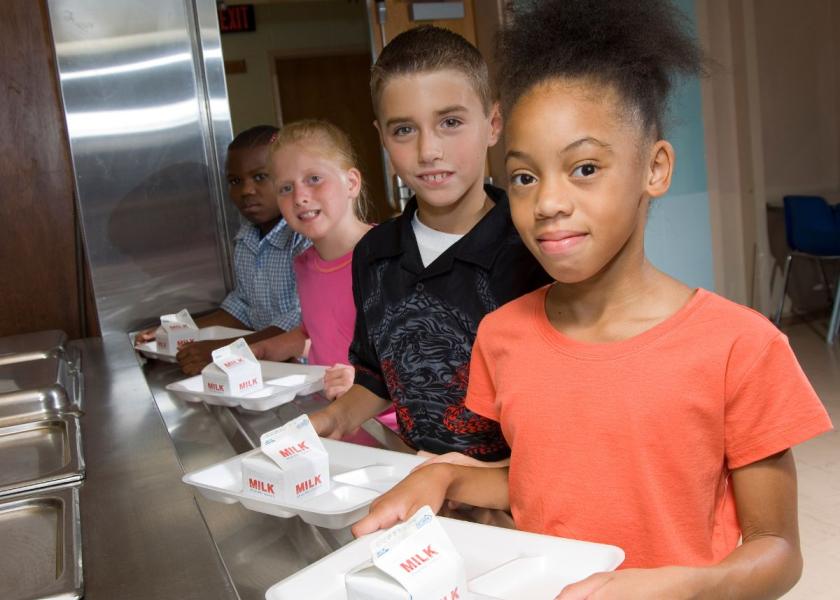Senator Urges USDA to Take Action on Nation’s Milk Carton Shortage

Schools across the nation have a crisis on their hands – a milk carton shortage that doesn’t seem to have an end in sight. The battle has been ongoing since early September and schools in New York, California, Pennsylvania and Washington State are feeling the pains the most.
At the root of the issue appears to be a production backlog at Pactiv Evergreen, a packaging manufacturer in Lake Forest, Ill. Pactiv Evergreen bills itself as “the leading manufacturer of fresh food and beverage packaging in North America.”
The company has not offered an official explanation as to why it is not currently able to fulfill its orders. But a November 3 summary of the situation on the packaging industry website “Packaging Dive” noted that earlier in 2023, Pactiv Evergreen announced it was restructuring to combine its beverage and food merchandising businesses.
As a part of that strategy, the company closed a paper mill in Canton, North Carolina, along with a converting facility in Olmsted Falls, Ohio. The dual closures resulted in a total of approximately 1,300 jobs lost.
In alternative strategies to continue to serve milk, some schools are exploring bulk milk dispensers and shelf-stable packaging. Others are simply pouring milk from plastic jugs into reusable or disposable cups.
One U.S. Senator, however, is calling on the U.S. Department of Agriculture (USDA) to address the situation. Sen. Chuck Schumer, senate majority leader for New York, is urging the USDA to take action on the national milk carton shortage hitting dairy farmers and schools in New York and states across the country.
In a recent letter to the department, Schumer urged the USDA to not only ensure New York dairy farmers have the technical support they need to get through the shortage, but also to work with industry leaders to devise creative solutions to get milk to school lunchrooms and to investigate the shortage to stop disruptions like this from happening in the future while minimizing downstream impacts.
“Milk is an essential part of our students’ school lunches and the lifeblood of our Upstate New York agricultural economy, but with a national milk carton shortage looming over our schools, now is the time for the USDA to step up to ensure our farmers get more support to continue their essential work. That is why I am calling on the USDA to start to work with industry leaders to address this shortage we are seeing nationwide, and provide all the leadership and technical support needed to help our New York dairy farmers,” Schumer wrote. “The USDA is uniquely positioned to investigate this problem from a national level and work with the dairy industry, our farmers, and schools to mitigate the impacts of shortages and propose solutions.”
New York State Assemblyman Chris Tague has also chimed in, calling the packaging shortage a “national crisis” on a recent post on X, formerly known as Twitter. “How we handle this situation is going to set a precedent for the availability of milk in schools,” stated the lawmaker and former dairyman. “And right now, it is not going in the right direction.”
Schumer explained in his letter that there is currently a nationwide shortage of half-pint milk cartons impacting New York’s dairy industry. He said that while there is not a shortage of milk, there is a supply chain problem with the cardboard cartons, consequently inhibiting suppliers’ ability to provide milk to schools and other customers in New York state and across the country.
In school lunchrooms, milk is required to be served with every meal according to USDA nutrition standards. While schools are currently working with suppliers to figure out temporary solutions to ensure schools are receiving enough milk and student’s nutritional needs are being met, Schumer says now is the time for the USDA to work with industry and our dairy farmers to find solutions.
For more industry news, read:







